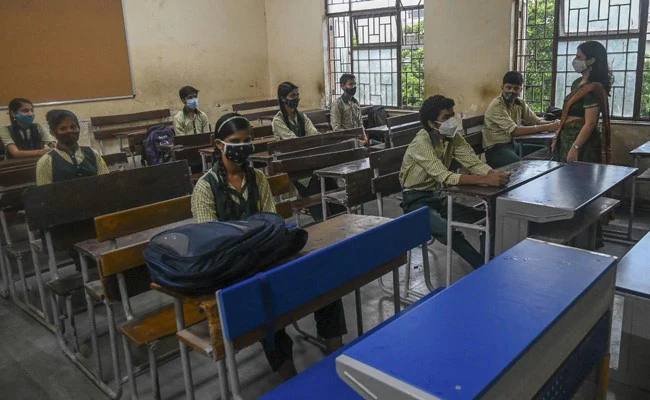In a significant development, the Supreme Court of India on Monday directed the Commission for Air Quality Management (CAQM) to “immediately” review the restrictions imposed on physical classes in schools, colleges, and educational institutions across Delhi-NCR due to rising air pollution levels. The court expressed concern about the impact of these restrictions on students, particularly those in classes 10 to 12, who are deprived of mid-day meals and lack access to online classes or air purifiers at home.
A division bench of Justices Abhay S. Oka and Augustine George Masih observed that the restrictions be reconsidered, particularly for students who are unable to access digital education options. As a result, the CAQM announced that schools, colleges, and educational institutions in the region may now conduct classes in a “hybrid” mode, combining both physical and online modes, depending on feasibility. The decision to opt for online education will be left to the students and their guardians.
The court’s intervention came after a petition filed by parents of students, including those from marginalized and special needs communities, who sought the reopening of schools. The petitioners argued that many families from lower-income backgrounds do not have access to the internet or electronic devices, leaving their children without any means of education.

While addressing the broader air pollution measures, the bench clarified that unless there is a significant improvement in air quality, it would not reduce the restrictions under the Graded Response Action Plan (GRAP) from level IV to III or II.
The Supreme Court also expressed strong disapproval of the Delhi Police and local authorities for their failure to comply with the court’s previous directions. The bench noted a “serious lapse” in the implementation of GRAP-IV measures, particularly at the entry points to Delhi where police officers were not stationed to check the entry of trucks, as directed by the court on November 18. Consequently, the court has ordered the CAQM to initiate action against the errant Delhi government and police officials by issuing show-cause notices under Section 14 of the CAQM Act, 2021.
In a stern warning, the Supreme Court stated that it would initiate prosecution proceedings against the Commissioner of Delhi if the court’s orders are not fully complied with. The CAQM was also instructed to take steps to mitigate the hardships faced by laborers and daily wage workers due to the ongoing restrictions.
The matter will be taken up again for hearing on Thursday.



